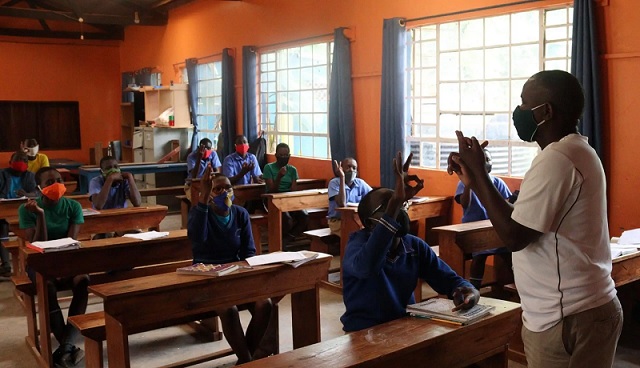
Kampala, Uganda | THE INDEPENDENT | The number of learners with special needs completing primary education has increased according to the Uganda National Examinations Board -UNEB. Available statistics show that the board registered 2,436 learners with special needs last year including those with visual and hearing impairments, the physically handicapped, and dyslexics.
This is the highest number recorded at PLE in Uganda indicating a 52.3 percent increase from the 1,599 registered in 2020. According to the statistics shared by UNEB while releasing the PLE results on Friday afternoon, 84.8 percent representing 1,914 candidates passed the examinations and therefore qualify to join post-primary institutions.
The analysis shows that those who are partially blind posted the highest performance. Eighty out of the 461 learners got the first grade, 209 (second grade) 71 (third grade), and 59 (fourth grade) while only 42 were not graded. The results show that learners with hearing impairments performed poorly compared to other categories. 116 out of the 263 candidates with hearing impairments were ungraded.
The best-performing learners 50, in this category, were in division II, 41 passed in third grade, and 56 in fourth grade. Easter Naguddi, a principal education officer in charge of Special Needs Education-SNE attributes the poor performance of the learners with hearing impairments to various factors such as late enrollment.
Naguddi also points to the fact that learners with hearing impairments have a challenge in comprehending the language used in the classroom, which negatively impacts their performance.
In recent interviews, teachers of learners with hearing impairments observed that the current assessment system, which holds them to the same standard as their able-bodied counterparts is a disadvantage to the learners. They also note that the learners require more time for instruction, demonstration, and illustration while in class and during tests.
The teachers note that while the Ministry of Education allocates 40 minutes per lesson for normal pupils, it takes them about two days to teach the same lesson to learners with hearing impairment. Despite the poor performance of learners with hearing impairments, Janet Kataha Museveni, the Minister of Education, says that she was pleased to note an increase in the registration of candidates with special needs.
However, the UNEB Chairperson, Prof Mary Okwakol informed the minister that with the increase in the number of special needs learners, the examination board requires more funding to adequately cater to them, as each of the learners requires a specialist in sign language, a transcriber, or an amanuensis (assistant writer).
*****
URN
 The Independent Uganda: You get the Truth we Pay the Price
The Independent Uganda: You get the Truth we Pay the Price



